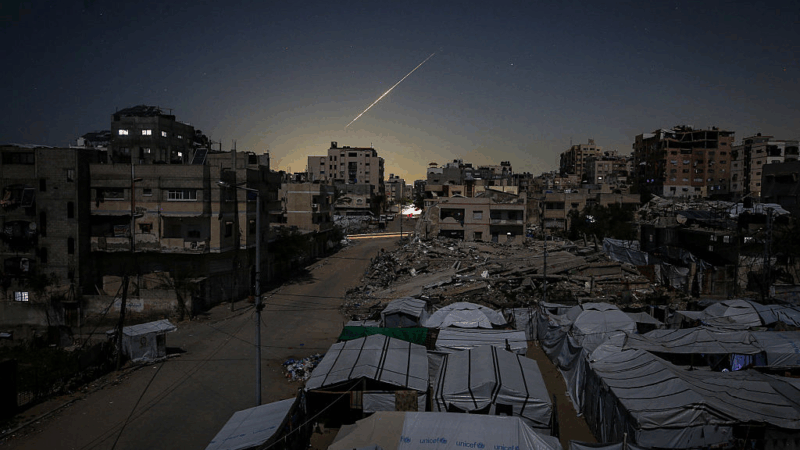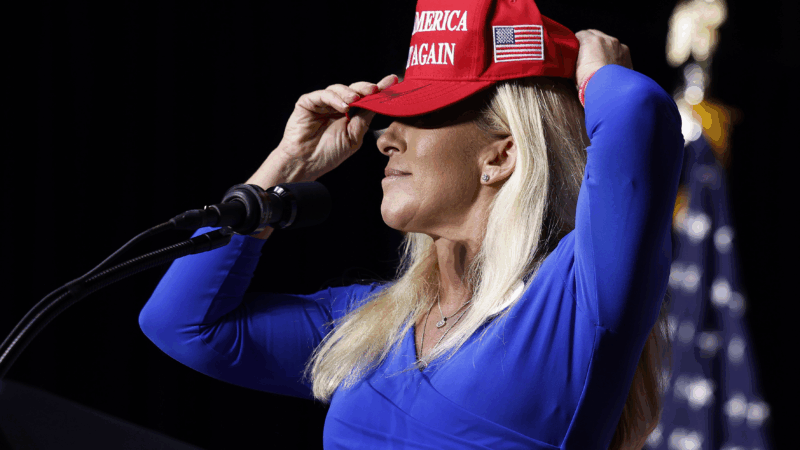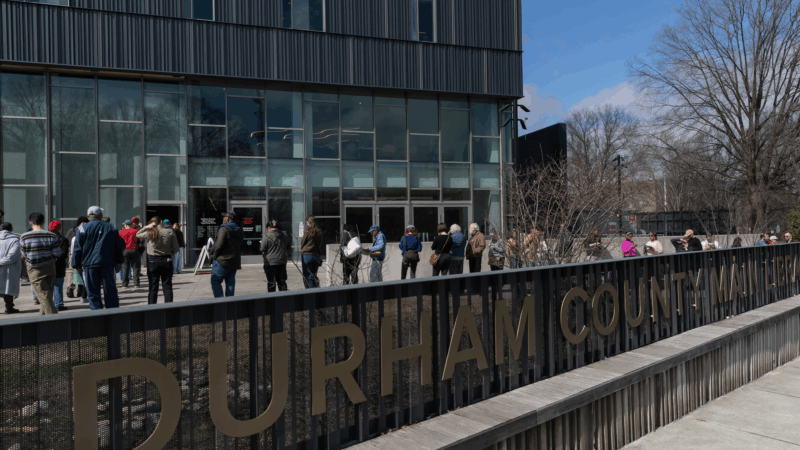First Afrikaners granted refugee status due to arrive in U.S.
JOHANNESBURG, South Africa — The U.S. government has officially granted 54 Afrikaans South Africans, white descendants of mainly Dutch colonizers, refugee status and they are expected to land in the U.S. on Monday May 12, three sources with knowledge of the matter have told NPR. The sources did not want to be named because they work for the U.S. government and fear for their careers.
U.S. authorities on Thursday were trying to arrange a charter flight that would bring the South Africans to Dulles Airport near Washington, D.C., on Monday morning, but it’s not clear if they will be allowed to land at Dulles. If that is not possible then they will be sent on commercial flights, according to the sources.
NPR has also seen an email confirming the plan, and that the new arrivals will then be sent on to their final destinations in various states across the country.
The group are the first group of Afrikaners to be accepted by the U.S. after President Donald Trump signed an executive order in February offering them possible resettlement.
“The Secretary of State and the Secretary of Homeland Security shall take appropriate steps, consistent with law, to prioritize humanitarian relief, including admission and resettlement through the United States Refugee Admissions Program, for Afrikaners in South Africa who are victims of unjust racial discrimination,” the order, signed February 7, said. It also cut aid to South Africa.
The sources said a press conference was planned for the group’s arrival at Dulles airport, which would be attended by high level officials from the Departments of State and Homeland Security.
States that have agreed to take in the South Africans include: Colorado, Massachusetts, Michigan, Minnesota, Washington, West Virgina, California, Idaho, Montana, North Carolina, Nevada, and New York, one source said. Several of the people granted refugee status have family ties in the U.S., they said.
The source noted it is unusual for refugees to be welcomed at the airport by U.S. dignitaries, and said the process of interviewing them in South Africa and granting them refugee status has been unusually quick.
The Afrikaners have been given P1 refugee status. According to the State Department website this is given to “individual cases referred by designated entities to the program by virtue of their circumstances and apparent need for resettlement.”
The South Africans will now have a pathway to U.S. citizenship and be eligible for government benefits.
One source told NPR the UN’s International Organization for Migration had refused to be involved in the process. A spokesperson for the IOM did not immediately reply to request for comment.
President Trump, his South African-born adviser Elon Musk, and Secretary of State Marco Rubio, have all been vocal about what they claim is the persecution Afrikaners — many of whom are farmers — face in South Africa.
Trump has accused the South African government of “doing some terrible things” and said “they are confiscating land, and actually they’re doing things that are perhaps far worse than that.”
The South African government passed a new land reform bill earlier this year, but so far no land has been confiscated and the government says a clause allowing for “expropriation without compensation” would be used only in rare instances.
South Africa’s Department of International Relations has also hit back against Trump’s allegations that Afrikaners are discriminated against.
“It is ironic that the executive order makes provision for refugee status in the U.S. for a group in South Africa that remains amongst the most economically privileged, while vulnerable people in the U.S. from other parts of the world are being deported and denied asylum despite real hardship,” the department said in a February statement.
On his first day back in office, Trump ordered the realignment of the “refugees admissions program,” effectively suspending it, explaining: “The United States lacks the ability to absorb large numbers of migrants, and in particular, refugees, into its communities in a manner that does not compromise the availability of resources for Americans, that protects their safety and security.”
Scientists make a pocket-sized AI brain with help from monkey neurons
A new study suggests AI systems could be a lot more efficient. Researchers were able to shrink an AI vision model to 1/1000th of its original size.
U.S. evacuates diplomats, shuts down some embassies as war enters fourth day
The United States evacuated diplomats across the Middle East and shut down some embassies as war with Iran intensified Tuesday while President Trump signaled the conflict could turn into extended war.
Trump promised the MAGA base no new wars. Then he went to war with Iran
President Trump promised his "Make America Great Again" voters an "America First" foreign policy. With the war in Iran, he's testing MAGA world's willingness to be flexible on one of its core beliefs.
North Carolina and Texas have primary elections Tuesday. Here’s what you need to know
The midterm elections are officially underway and contests in Texas and North Carolina will be the first major opportunity for parties to hear from voters about what's important to them in 2026.
College students, professors are making their own AI rules. They don’t always agree
More than three years after ChatGPT debuted, AI has become a part of everyday life — and professors and students are still figuring out how or if they should use it.
Kristi Noem set to face senators over DHS shutdown, immigration enforcement
The focus of the hearing is likely to be on how Kristi Noem is pursuing President Trump's mass deportation efforts in his second term, after two U.S. citizens were killed by immigration officers.








